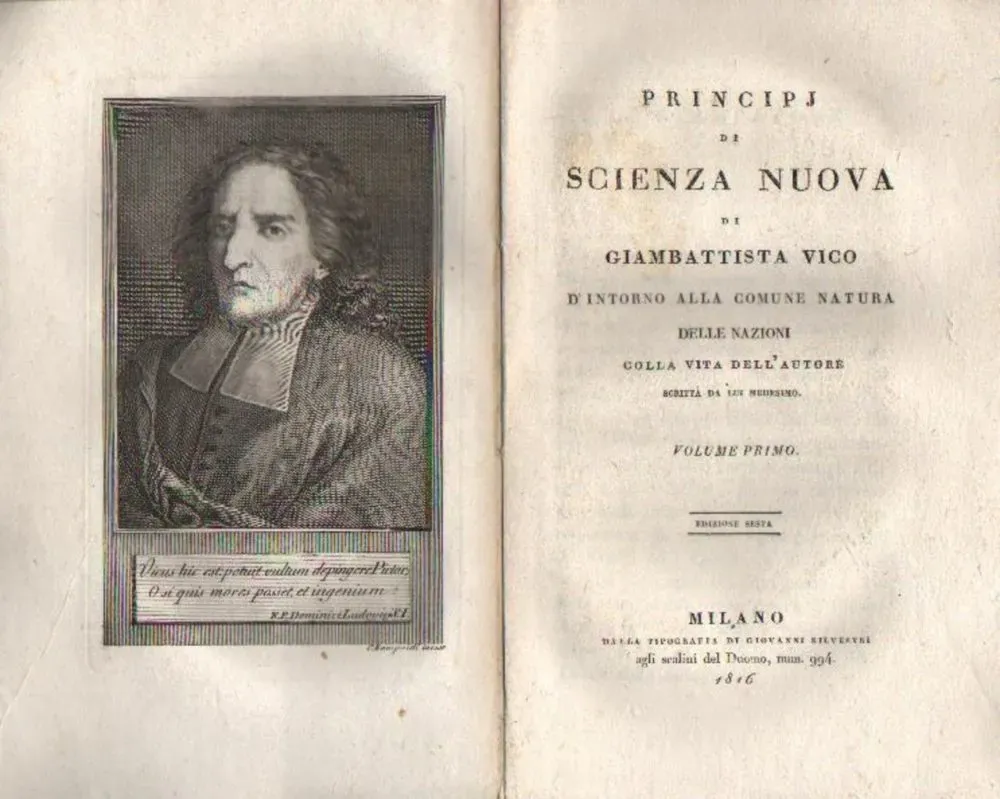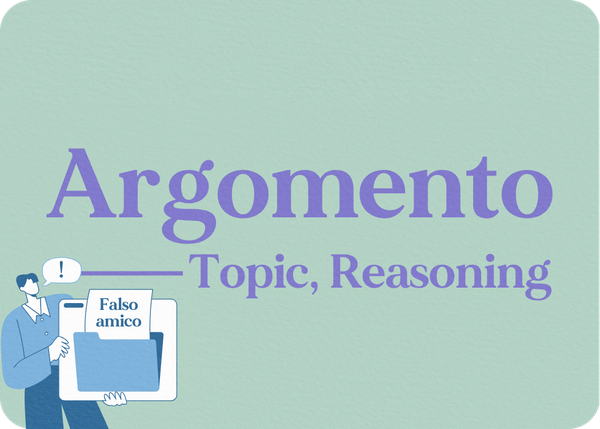Argomento
NOUN [masculine]
Meaning and English translation 🔖
1. Topic, Subject
🇬🇧 The subject or topic of discussion or writing; the matter being dealt with or talked about.
🇮🇹 Ciò di cui si parla o si scrive; l'oggetto, la questione, il tema di cui si tratta o si discorre.
2. Reasoning, Argument
🇬🇧 Something used to support what is being stated; a reason, reasoning, or proof.
🇮🇹 Ciò che viene portato a sostegno di quel che si afferma; una ragione, un ragionamento o una prova.
| Masculine ♂️ | Feminine ♀️ | |
|---|---|---|
| Singular | l' - un argomento | - |
| Plural | gli - degli argomenti | - |
Example sentences 💬
L'argomento della conferenza era il cambiamento climatico.
The topic of the conference was climate change.
Ha presentato un argomento convincente a favore della sua proposta.
He presented a convincing argument in favor of his proposal.
This article is brought to you by Giulia School, where you can learn Italian the natural way—with real conversations and passionate teachers guiding you every step of the journey. It’s the closest thing to immersion you can get without living in Italy. Click here to learn more.
Idioms with argomento 🇮🇹
Entrare in argomento
→ To get to the point
Dopo i convenevoli, siamo finalmente entrati in argomento.
After the pleasantries, we finally got to the point.
Cambiare argomento
→ To change the subject
Quando la conversazione diventa tesa, è meglio cambiare argomento.
When the conversation gets tense, it's better to change the subject.
Argomento del giorno
→ Topic of the day
L'argomento del giorno in ufficio era la nuova politica aziendale.
The topic of the day at the office was the new company policy.
Essere a corto di argomenti
→ To run out of arguments
Alla fine del dibattito, era a corto di argomenti.
By the end of the debate, he had run out of arguments.
Dare argomento a
→ To give reason for
Lava i tuoi piatti: non dare argomenti ai coinquilini per litigare!
Wash your dishes: don't give roommates reasons to argue!
Where does the word argomento come from? 🔎
Argomento comes from the Latin argumentum, derived from arguĕre, meaning "to demonstrate".
Did you know that... 🤓
Impress your italian friends with curious facts about Italy and its culture

Italy has a rich tradition of philosophical argumentation that has profoundly influenced Western thought.
During the Renaissance, many Italian thinkers revolutionized the way of arguing in sciences.
For instance, Galileo Galilei (1564-1642) pioneered the modern scientific method, emphasizing the importance of empirical observation and mathematical demonstration. His approach, which combined practical experiments with theoretical reasoning, challenged the authority of prevailing Aristotelian philosophy. Galilei's work "Dialogue Concerning the Two Chief World Systems" (1632) is a masterful example of scientific argumentation, where he uses dialogue to present arguments for and against the Copernican system.
Another example is Giambattista Vico (1668-1744), who developed an innovative argumentation theory based on rhetoric and history in the 18th century. In his masterpiece "The New Science" (1725), Vico proposed that human understanding of truth is deeply rooted in historical and cultural context. He argued that knowledge of human societies requires a different approach from natural sciences, anticipating many ideas of modern social sciences.
These Italian thinkers not only enriched the philosophical landscape of their time but laid the foundations for new ways of arguing and understanding the world, profoundly influencing modern thought in fields ranging from physics to sociology.






